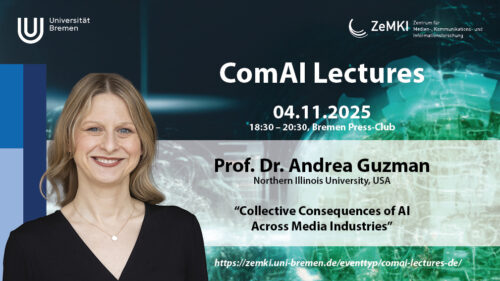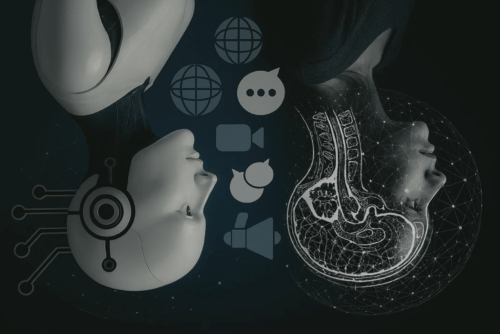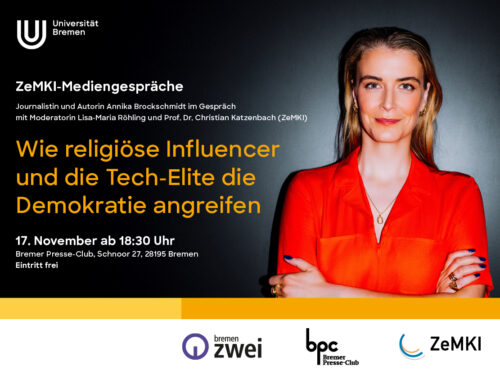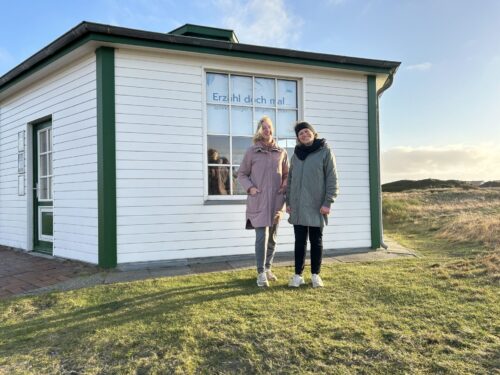ZeMKI Visiting Research Fellows 2026
ZeMKI, Centre for Media, Communication and Information Research
The Centre for Media, Communication and Information Research (ZeMKI) is one of seven central research units at the University of Bremen and is one of the important European institutions researching questions into media-related transformations at the interface of the cultural, social, and technical sciences. Our research focuses on the emerging digital society in terms of the inequalities it generates while probing the historicity of their genesis and the challenges posed by algorithmic systems, automation, and the burgeoning datafied society. ZeMKI coordinates the international „Communicative AI“ research unit.
News

Prof. Dr. Lissa Holloway-Attaway (University of Skövde, Sweden): "Making Kinship and Playing Dead: Death, Grief, Mourning, and ‘Passing on‘ in Video Game Culture(s)"
- Datum: 5. November 2025
4. November 2025

Prof. Dr. Andrea L. Guzman (Northern Illinois University): The Collective Consequences of AI Across Media Industries
- Datum: 4. November 2025
- Location: Bremer Presse-Club
Abstract This talk examines the shared implications of emerging AI technologies across media industries. Advancements in generative artificial intelligence are bringing rapid changes to communication industries. AI applications can perform increasingly human-like roles in the communication process and, as such, can augment and even automate human media work in profoundly different ways from predecessor technologies. (…)
3. November 2025

What does AI mean for communication and media studies?
1. November 2025

ZeMKI media talks in cooperation with the Bremen Press-Club: Annika Brockschmidt
- Datum: 17. November 2025
- Location: Bremer Presse-Club
27. October 2025

Last day of the ZeMKI anniversary conference – Outlook for the next 20 years of research
24. October 2025

ZeMKI looks 20 years into the future – Day two of the anniversary conference
23. October 2025

Berber Hagedoorn as ZeMKI Fellow in Bremen
22. October 2025

ZeMKI member Dr. Philip Sinner at GAMSPON meeting in Brussels
22. October 2025

